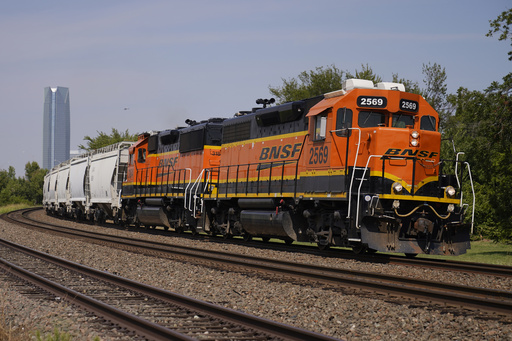In a surge of brazen criminal activity, freight trains traversing the deserts of California and Arizona have become prime targets for thieves, resulting in the theft of over $2 million worth of Nike sneakers. These audacious heists have even included stealing unreleased models, officials and court documents indicate.
On January 13, an incident was reported where suspects severed an air brake hose on a BNSF freight train in a secluded part of Arizona, managing to escape with more than 1,900 pairs of Nike sneakers yet to hit store shelves. The haul, valued at over $440,000, prominently featured the soon-to-be-released Nigel Sylvester x Air Jordan 4s, slated for a March 14 release with a retail price of $225, according to a federal court filing in Phoenix.
This is one of at least ten similar incidents focusing on BNSF freight trains in remote sections of the Mojave Desert, a Los Angeles Times report reveals. Almost all these thefts centered on Nike footwear, investigators confirmed.
Eleven individuals were charged with possessing or receiving goods stolen from an interstate shipment following the January 13 haul. All defendants, who pleaded not guilty, are detained pending trial. Among them are ten Mexican nationals in the U.S. unlawfully, and one facing asylum proceedings, court records show.
The capture of suspects in the January heist was facilitated by tracking devices that were planted within some stolen boxes, according to the complaint. In another noteworthy case, an emergency stop was triggered on a BNSF train near Hackberry, Arizona, on November 20 when air pressure began to drop. Sheriff deputies intercepted a white panel van leaving the area, seizing around 180 pairs of yet-to-be-released Air Jordan 11 Retro Legend Blue sneakers, estimated to be worth $41,400.
Additional burglaries of trains near Kingman and Seligman, Arizona, led to the theft of $612,000 in Nike products and the arrest of eight individuals, federal complaints reveal.
Cargo thieves often survey and target merchandise along rail lines close to Interstate 40 by boarding slow-moving trains, especially during track changes to access containers, says Keith Lewis of Verisk’s CargoNet. Lewis suggests that inside information about valuable shipments is sometimes provided by insiders at warehouses or trucking companies.
One case pointed to a Mexican national orchestrating train burglaries through scouts informing him of high-value shipments. This individual coordinated with crews, supplied vehicles, facilitated the sale of stolen goods, and managed other logistical aspects.
Thieves are often supported by accomplices in “follow vehicles,” which monitor railcar movement. Stolen goods are generally thrown off trains that have been forced to stop by damaging air hoses or at scheduled halts, explained Homeland Security Investigations special agent Brynna Cooke through filed affidavits.
The staggering cost of cargo theft from trains reached upwards of $100 million last year, affecting the six largest U.S. freight railways. This total includes both the value of stolen items and costs associated with repairing damaged railcars, as the scope of thefts becomes increasingly organized, according to estimates from the Association of American Railroads. Last year’s recorded theft attempts jumped by about 40% compared to the previous year, amounting to 65,000 across the nation.
In 2022, a series of thefts saw trains approaching downtown Los Angeles looted for months, with pilfered packages scattered across tracks, forcing authorities and freight companies to bolster security. Chicago experienced a similar situation in 2015, where 111 firearms were taken after criminals breached train locks in a railyard.
Railroads have invested extensively in anti-theft measures, but given that they manage over 140,000 miles of track nationwide, including remote and urban areas vital to myriad shipments, cordoning off access entirely is impractical.
The trade association emphasizes the need for stricter federal enforcement and penalties to deter such thefts. Freight rail companies estimate arrests occur in only about 10% of thefts, with many of those apprehended being repeat offenders. One railroad even reported detaining the same individual five times in a single day.
Inquiries directed to BNSF and Union Pacific by news agencies remained unanswered, though BNSF indicated they collaborate with local law enforcement and prosecutors as needed. They instructed their personnel to report, not confront, thieves due to the risk imposed by the sheer length of trains and adeptness of criminals at avoiding detection.
Cargo theft isn’t limited to trains but is prevalent across shipping nodes nationwide, garnering FBI attention. U.S. Immigration and Customs Enforcement figures suggest cargo theft incurs losses between $15 billion and $35 billion annually, targeting joint shipping centers like Los Angeles, Dallas, Memphis, Chicago, and Atlanta.


